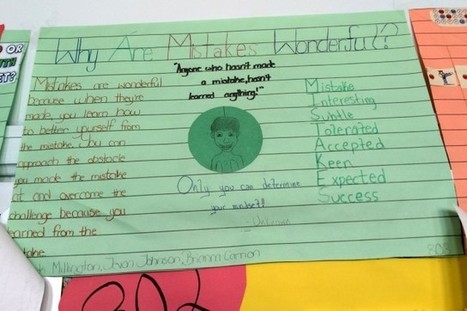Education circles are abuzz with a new concept: that resilience and persistence are just as important as intelligence to predicting student success and achievement. But can "grit" actually be taught?
Research and publish the best content.
Get Started for FREE
Sign up with Facebook Sign up with X
I don't have a Facebook or a X account
Already have an account: Login
Tech tools that assist all students to be independent learners & teachers to become better teachers
Curated by
Beth Dichter
 Your new post is loading... Your new post is loading...
 Your new post is loading... Your new post is loading...
|
Nancy Jones's curator insight,
March 18, 2014 2:48 PM
We will never grow if we don't make mistakes and then learn from them. I am sure Bill Gates and James Dyson would agree. Look up any interview with them as they talk about their products. |











Grit, persistence, determination, growth mindset...there are many buzzwords in education today that focus on similar ideas. This post is actually from NPR. (You could hear the interview on their website. The link is at the end of this post.)
It explores the concept of grit and how the term has come to enter the field of education.
Do you think grit "a better predictor of success than IQ or other measures"? Can "grit" be taught? Can you develop a school around the concept of grit? Will teaching students about growth mindset change make a difference in their education? These and many other ideas are addressed in this post.
To go to NRP to hear the article: http://www.npr.org/2014/03/17/290089998/does-teaching-kids-to-get-gritty-help-them-get-ahead